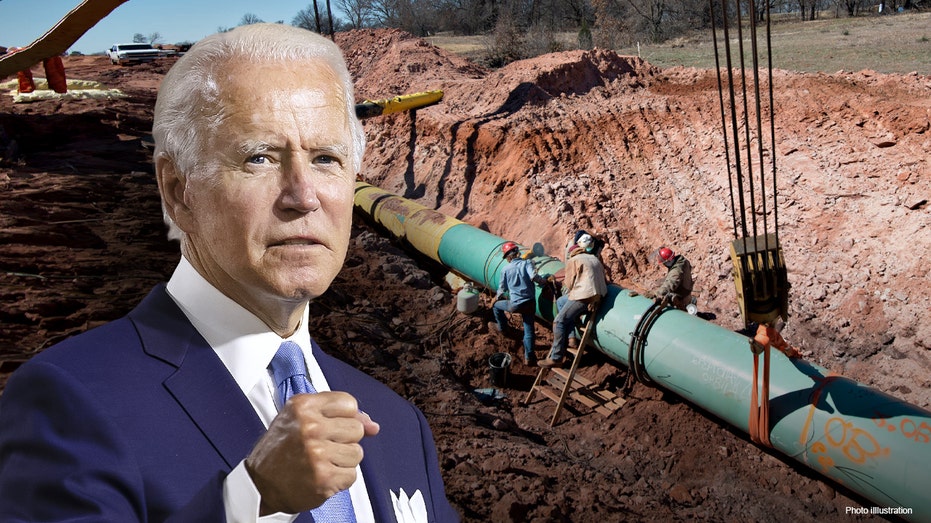The nation’s top energy regulator authorized a major energy developer to move forward with a natural gas expansion project in the Pacific Northwest.
The Federal Energy Regulatory Commission (FERC) issued a certificate Thursday for the so-called Gas Transmission Northwest XPress Project (GTNXP), which will upgrade three existing compressor stations and increase capacity on an existing system that has transported natural gas for decades. GTNXP developer TC Energy; GOP lawmakers in Oregon, Idaho and Washington; and labor unions have all called on FERC to issue the certificate.
“The GTN XPress project will play a critical role in keeping energy affordable and reliable for consumers in California and the Pacific Northwest,” TC Energy spokesperson Michael Tadeo told Fox News Digital. “We appreciate FERC’s bipartisan action today to approve the project and will work diligently to place it into service as soon as possible.”
According to TC Energy’s application filed with FERC in October 2021, the $75 million project will leverage existing infrastructure to increase GTN’s incremental mainline capacity by 150,000 dekatherms per day — enough to power roughly 500,000 additional homes in the region. The operational GTN pipeline travels through Idaho, Washington and Oregon and serves California customers.
BIDEN ADMIN HAMMERED BY DEMS, GOP ALIKE AFTER LATEST CRACKDOWN ON OIL PRODUCTION
The project, which mainly consists of software and other upgrades to TC Energy’s existing infrastructure, comes as demand for natural gas transportation on the GTN pipeline system has increased 26% in recent years while nearby natural gas production has dwindled. The pipeline feeds key gas supplies to utility companies which, in turn, provide energy to residential, commercial and industrial customers.
“After I led a bicameral group of my colleagues in urging FERC to act, I’m glad the commission is finally allowing this much-needed energy project to move forward,” Rep. Lori Chavez-DeRemer, R-Ore., told Fox News Digital in a statement. “It will support domestic energy production and boost our energy security while also helping lower utility bills for families. Although it’s overdue, this is the right decision.”
INSPECTOR GENERAL WARNS BIDEN ADMIN’S $400 BILLION GREEN ENERGY LOAN PROGRAM IS RIPE FOR ABUSE
Earlier this month, Chavez-DeRemer, fellow Oregon GOP Rep. Cliff Bentz, four other House Republicans and Idaho GOP Sens. Mike Crapo and James Risch penned a letter to FERC leadership, urging it to immediately approve the pipeline expansion project that they said would benefit their constituents, help achieve climate goals and provide “energy certainty” for the region.
The letter came after FERC, which is chaired by Willie Phillips, a Democrat appointed by President Biden, opted to delay approval for the project multiple times without offering an explanation amid pressure from Democrats and environmental groups to reject its application.
In July, FERC removed the project from its open-meeting agenda without explanation. One day before the meeting, Democrat Oregon Sens. Jeff Merkley and Ron Wyden wrote to the regulator, imploring it to reject the project and arguing that states through which the pipeline travels are “moving away from fossil fuels.”
The commission again opted against discussing the proposal during its following meeting on Sept. 21, which earned a pointed rebuke from TC Energy.
“The Commission’s continued inaction has almost certainly exposed GTN’s customers, who serve residential and commercial natural gas and electricity users, to more expensive supply sources to meet their load demands this winter,” Stanley Chapman III, TC Energy’s executive vice president and chief operating officer of natural gas pipelines division, wrote in a letter to FERC commissioners after the September meeting.
“As experience in California and elsewhere shows, delaying natural gas infrastructure projects hurts energy reliability and affordability and burdens families, small businesses, and other energy users,” Chapman added. “These types of delays in Commission action also erode the kind of certainty and predictability that gas infrastructure developers rely on for planning, financing, and constructing projects that are in the public’s interest.”
























